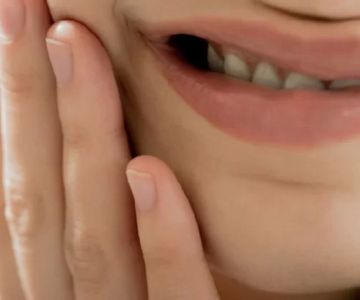Bad breath, medically known as halitosis, is a common yet distressing condition that affects countless people worldwide, including those in the United States. While often perceived as only a personal hygiene issue, bad breath can sometimes be an indicator of underlying medical conditions or lifestyle habits that need to be addressed. With Americans increasingly aware of health and self-presentation, understanding the root causes and remedies for bad breath is essential. Dentistry Toothtruth offers insights into this issue, aiming to help you achieve a healthier mouth and higher confidence.
Understanding the Causes of Bad Breath
The foremost step in combating halitosis is understanding its various causes. Bad breath primarily originates from the mouth, often due to food particles that get trapped between teeth and begin to decompose. Bacterial growth on the tongue or between teeth also releases foul-smelling gases. Foods like garlic, onions, and spices can contribute significantly due to their potent compounds entering the bloodstream and being exhaled through the lungs. In some cases, underlying health conditions like sinus infections, diabetes, or liver disease could be contributing factors. According to a survey by the American Dental Association, over 50 million Americans suffer from chronic halitosis, underlining the importance of identifying and addressing its sources.
The Role of Oral Hygiene in Preventing Halitosis
Maintaining impeccable oral hygiene is crucial in the fight against bad breath. Brushing at least twice a day with fluoride toothpaste and flossing daily can remove food particles and plaque that lead to odors. Dental check-ups, ideally every six months, ensure that potential problems are caught early. The use of a dedicated tongue scraper can also help remove bacteria from the tongue surface, a common site for the accumulation of odor-causing bacteria. Incorporating mouthwash into your routine can provide an additional layer of freshness, although it's not a substitute for brushing or flossing. Studies suggest that consistent oral care significantly reduces the chances of developing halitosis.
Diet and Lifestyle Factors Affecting Breath
What you eat and how you live significantly impact your breath freshness. Foods like garlic and onions contain sulfur compounds that linger in the body and are released when you exhale. Likewise, diets low in carbohydrates can cause "keto breath," resulting from the breakdown of fats. Smoking and alcohol consumption also contribute to unpleasant breath by drying out the mouth and allowing bacteria to thrive. Drinking plenty of water and following a balanced diet can help mitigate these effects. Dentistry Toothtruth advises on incorporating fresh fruits and vegetables which naturally clean teeth while promoting saliva production, the mouth's natural cleanser.
Medical Interventions and Treatments
When regular hygiene practices and lifestyle changes are insufficient, medical interventions may be necessary. Consulting a dentist is crucial if bad breath persists despite proper oral care, as it might indicate periodontal disease or other serious conditions requiring professional treatment. Periodontal cleanings, treatments for sinus issues, or specific medications might be recommended to address underlying health issues. Additionally, dentists may suggest products containing chlorhexidine or zinc compounds, which have shown effectiveness in neutralizing odors. Dentistry Toothtruth emphasizes the role of professional care in managing and treating chronic cases of halitosis.
Conclusion: Taking Control of Your Oral Health
In conclusion, bad breath is a manageable condition with proper understanding and action. By identifying its causes, maintaining rigorous oral hygiene, considering dietary choices, and seeking professional advice when necessary, individuals can markedly improve their breath freshness. Dentistry Toothtruth encourages everyone to take proactive steps towards oral health, emphasizing that a fresh breath not only reflects health but also enhances social interactions and self-esteem. Regular visits to your dentist, alongside adhering to recommended oral care practices, can help ensure that your smile remains fresh and confident.



 Westgate Dental Arts3.0 (2 review)
Westgate Dental Arts3.0 (2 review) Coventry Family Dental4.0 (247 review)
Coventry Family Dental4.0 (247 review) Familia Dental3.0 (1028 review)
Familia Dental3.0 (1028 review) Dr. Daniel S. Fife, DDS4.0 (31 review)
Dr. Daniel S. Fife, DDS4.0 (31 review) Dentistry At Suburban Square: Michael I. Wollock, DMD4.0 (1228 review)
Dentistry At Suburban Square: Michael I. Wollock, DMD4.0 (1228 review) Comfort Care Dental4.0 (1156 review)
Comfort Care Dental4.0 (1156 review) The Importance of Oral Health Education During Pregnancy for a Healthy Pregnancy
The Importance of Oral Health Education During Pregnancy for a Healthy Pregnancy Why Skipping Dental Checkups Can Lead to Bigger Oral Health Problems
Why Skipping Dental Checkups Can Lead to Bigger Oral Health Problems Best Tips for Brushing Your Teeth Properly for Healthy Gums: Essential Techniques for Oral Health
Best Tips for Brushing Your Teeth Properly for Healthy Gums: Essential Techniques for Oral Health Advantages of Porcelain Dental Restorations
Advantages of Porcelain Dental Restorations How Can Diabetes Cause Tooth and Gum Problems? Preventing and Managing Oral Health Issues
How Can Diabetes Cause Tooth and Gum Problems? Preventing and Managing Oral Health Issues Healthy Habits for Promoting Good Oral Health and Hygiene: Tips for a Healthy Smile
Healthy Habits for Promoting Good Oral Health and Hygiene: Tips for a Healthy Smile